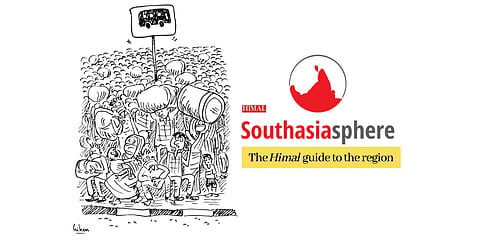Southasiasphere: ISSUE #2
This is the second edition of Southasiasphere, our guide to developments from the region. We'll be monitoring the region to bring you fortnightly updates on political, legislative, economic, environmental and diplomatic events. Our aim is not to flood you with information, but provide clear analysis and outlook. On our radar are not just headline-grabbing news, but also stories ignored by corporate media both within and outside the region. As this comes at a critical time of global pandemic, when many seek reliable information, we're making Southasiasphere free to all for now. Do check out our membership plans and support our work.
This week in Southasia:
The long walk home for migrant workers
Big Brother: tech and surveillance during COVID-19
In Sri Lanka, the president pardons former army officer convicted of multiple murder
CROSSBORDER
The long walk home
In our first edition of Southasiasphere, we focused on how Southasia's migrant workers abroad were affected by COVID-19 travel bans. With countries in the region now under lockdowns, the plight of migrant workers in Southasia is abundantly clear.

